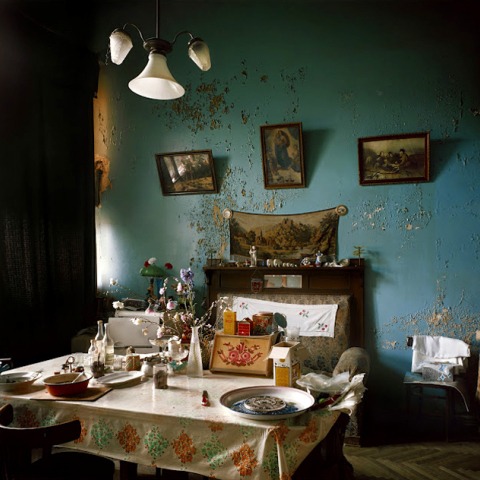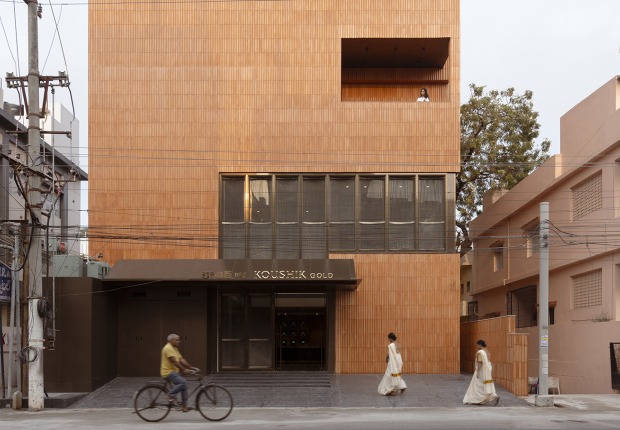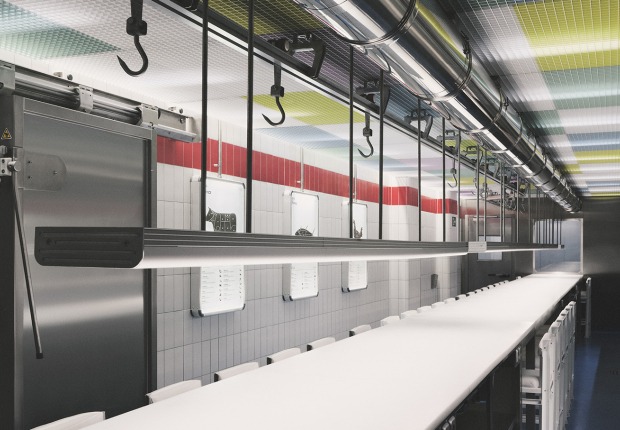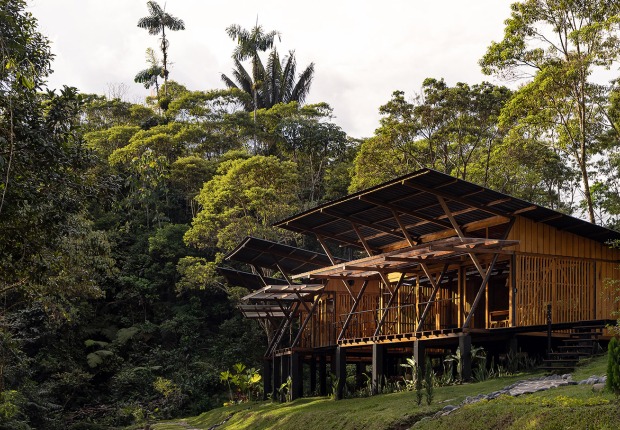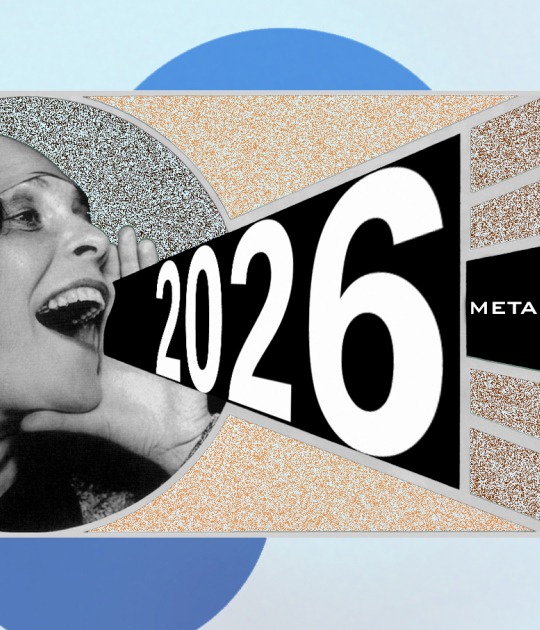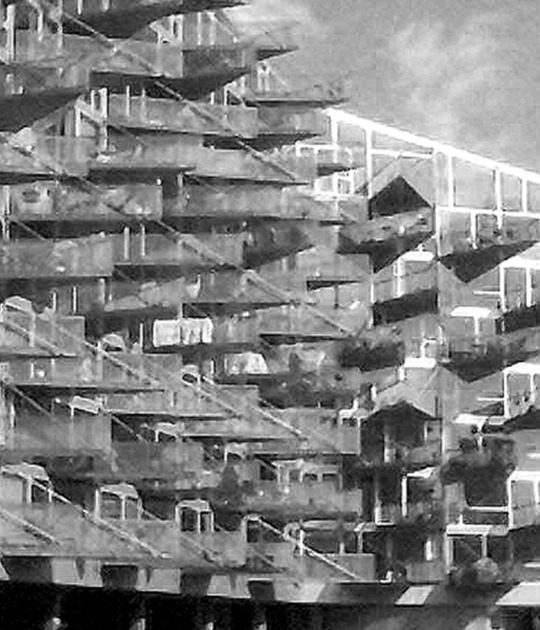"... the only exception to the general conviction was the one of that small newspaper (...) that said, The problem of housing has been solved in Portugal and Spain".
Jose Saramago. "The Stone Raft".
A crack in the Pyrenees caused the separation of the Iberian Peninsula from Europe turning it into an island sailing vertiginously across the Atlantic Ocean. Among the most varied reactions occurred: "... people are trying to occupy the hotels, they say that if there are no tourists, they have to live somewhere" (1). In "The Stone Raft" Saramago plays with reality. Triggered the event, families looking for a more dignified dwelling began to settle in hotels and resorts. Soon they organized lodged commissions, constituting specialized cells in charge of the harmony and the appropriate operation of any community.
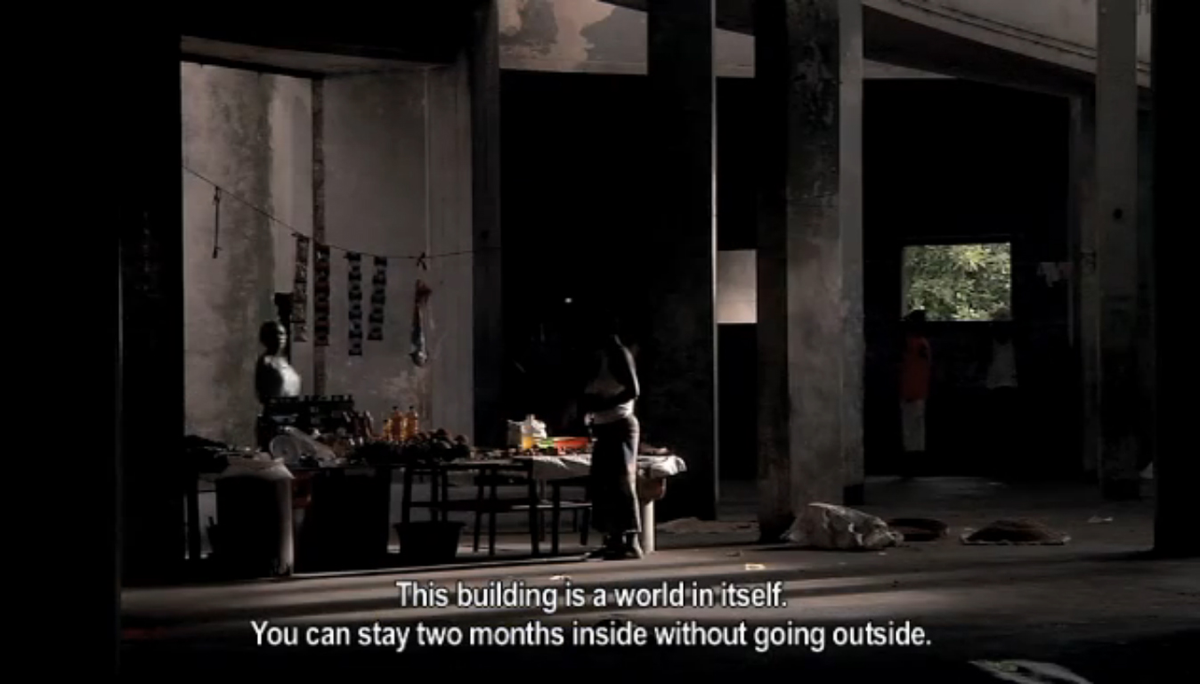
"Grande Hotel" by Lotte Stoops. Screenshot video.
While I am talking about a fictional fact, the transcription of a poem taken by Karel Teige from the hallway of a hotel located in a German town in "The minimum dwelling" ("…here I live, love and take my rest/here is my home, here/I live best") (2) shows this typology as an appropriate model for a "community housing reconstruction" (3) based on centralization and collectivization of all functions except from the individual cells for the differentiated habitat of each person.
A harsh reality is woven in "Grande Hotel" (4), a documentary about a modernist hotel built in 1955, nowadays, a symbol of the troubled history of Mozambique. What was once a monumental building with 110 luxurious rooms, is currently the habitat of 2500 "guests" in status of poverty. However, we have to wonder why residents maintain so little contact with the outside, and have formed a kind of enclave with a surprising power of self organization.
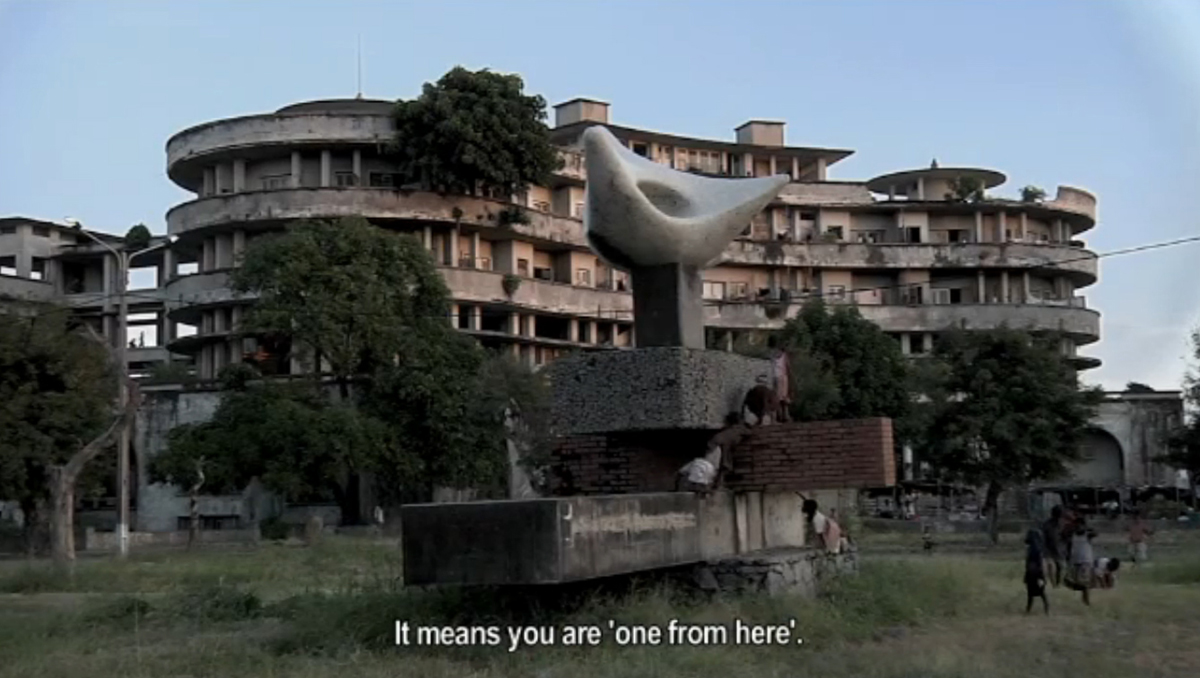
"Grande Hotel" by Lotte Stoops. Screenshot video.
"The review of the problem of 'minimum dwelling' may not need new proposals but only a re-reading and updating of the first studies made in the twenties" (5). In the early twentieth century, as a proposal of the Soviet Constructivist movement, emerged the so-called social condensers, buildings designed to transform the relations among men in the three areas of the new socialist state: housing, club and factory.
At the same time there was the "hybrid", a prototype that shares its characteristics with the social condenser as its derivation from the avant-garde period, the mixed program, and its capacity to save resources, despite it emerged with the purpose of revitalizing the American cities and making profitable the occupation of the land. Therefore, the social condenser was born from the belly of a Soviet state, being thus the concretion of an ideology that caused "a laboratory of innovating creations" (6) that promoted the experimentation. In the case of the hybrid, it was born from the capitalist system and it was written in accounting books while it challenged the inventiveness of investors (7).
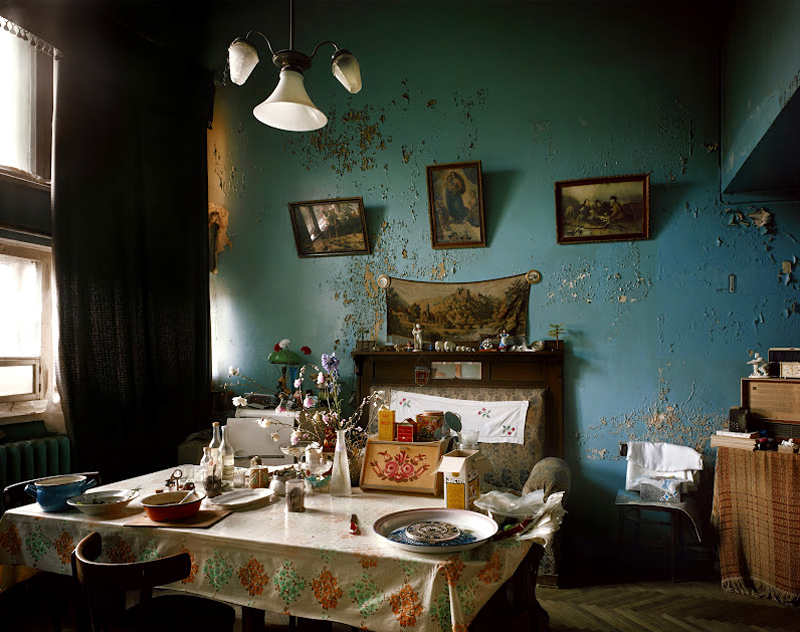
House-commune Narkomfin. Interior. Fhoto: Richard Pare 1995. Source: "Construir la revolución". La Caixa /TURNER.
Although both models were the result of a functional thinking, the first one concentrated all its power of transformation over the members of a community and only intended to be self-sufficient buildings isolated from the conventional city. By contrast, the hybrid opens to the city and encourages contact between strangers, intensifies the land use, and densifies relationships. Perhaps the hybrid has demonized the power of its antagonist of modeling the behavior and has added it to its ability to activate the city. That is why its vigor favors it in a crisis situation, although it has the weak heel of the financing.
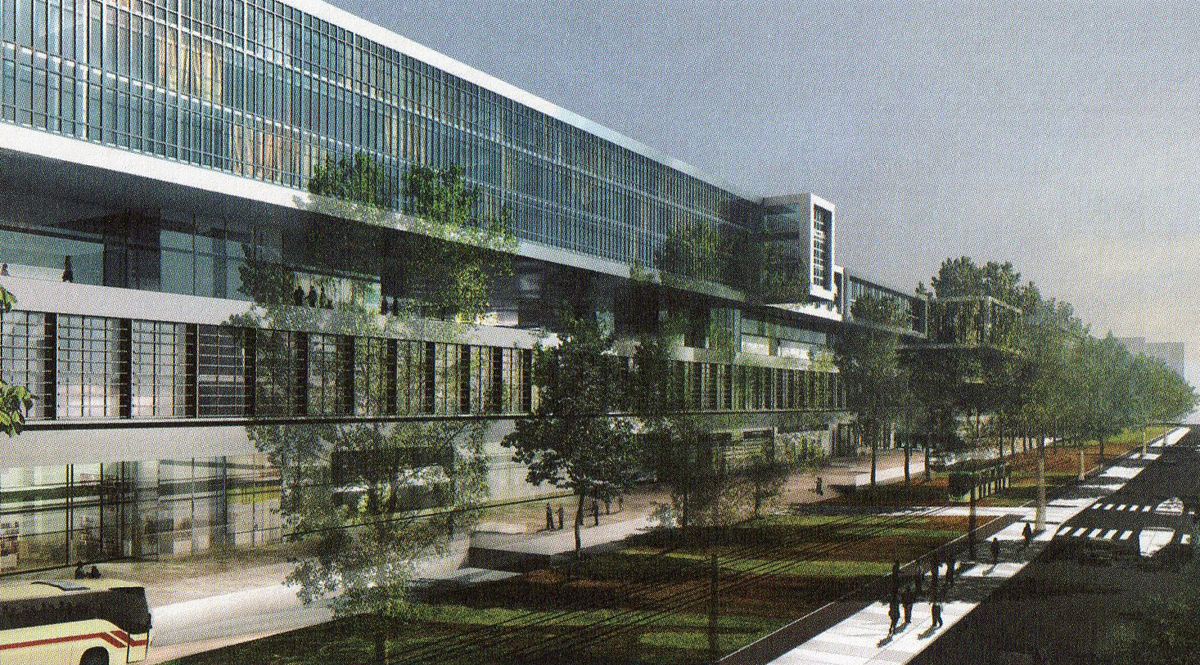
Hybrid: Entrepôt Macdonald. Proposal to transform (housing, office, retail, equipment). OMA, FAA, XDGA. 2006-2013. Courtesy of OMA.
Among these architectural background and some literature, I inevitably allude to the mobilizations in Spain caused by the displeasure of a critical mass of citizens, whom among others things claims the impossibility of an wide sector to accede to a worthy housing. This is just one of the requirements of a society dissatisfied with certain models of dwelling the cities where the oversupply, the under occupancy and the abandonment of buildings are only part of a series of conflicts.
What lesson do we get from these events? For some people, the "experiments of improvisation, recycling, collective design…" in Puerta del Sol in May 2011 were considered as "a lesson of ephemeral architecture and citizen appropriation" and for others as "a chaos without aesthetic power" (8). Given this divergence, and considering the statements along this article, I conclude with a reflection from Andres Perea: "The architectonic solutions did not respond to uses such as "sleep" or "eat", but to something more primal: "join". The threshold of the human relations is in that ceremony, it is the origin of community" (9).
NOTES.-
(1)_SARAMAGO, José. "La balsa de piedra". Santillana Ediciones Generales. Madrid. 2011. Pp. 132.
(2)_TEIGE, Karel. "The Minimum Dwelling". Ed. Massachussets Institute of Technology. 2002. Pp. 175.
(3)_BARBA, José Juan. "Vivienda mínima". Revista CIRCO. Madrid. 2006.
(4)_STOOPS, Lotte. "Grande Hotel". Documentary film. 70 min. Bélgica-Mozambique. 2010.
(5)_Ibíd. (3).
(6)_AMETOVA, María; et.al. "Construir la revolución". Arte y arquitectura en Rusia 1915-1935. Ed. Fundación "la Caixa"/TURNER. Barcelona/Madrid. 2011.
(7)_FERNÁNDEZ Per, Aurora; et.al. "This is Hybrid". Ed. a+t architecture publishers. Vitoria-Gasteiz. 2011.
(8)_GOSÁLVEZ, Patricia. "Arquitectura de guerrilla en el 15-M". Diario El País. España. Publicado el 17 de junio de 2011.
(9)_PEREA, Andrés, en: Ibíd. (8).
IN TREATMENT - METALOCUS.
DIRECTOR: JOSÉ JUAN BARBA. COORDINATION: INÉS LALUETA. ORGANIZATION: INÉS LALUETA, PEDRO NAVARRO. GUESTS SECOND SEASON: JOSÉ JUAN BARBA, JAVIER SANCHO, FRANCISCO PELAEZ, MICHAEL MORADIELLOS, MELISSA SCHUMACHER, VERÓNICA ROSERO, AINHOA MARTÍN.
